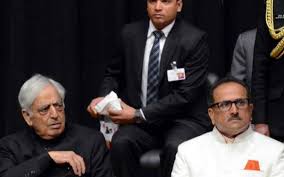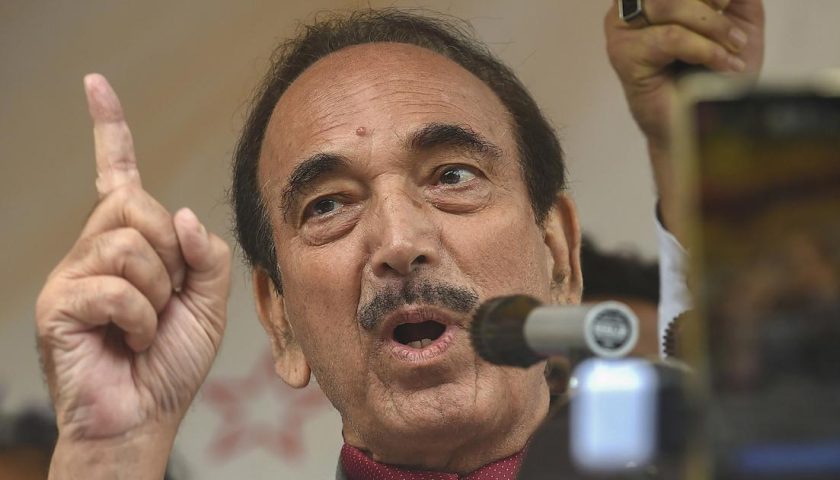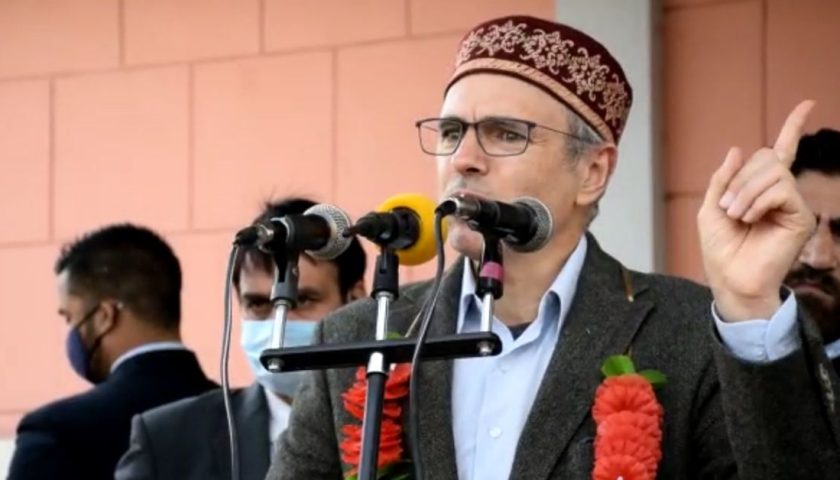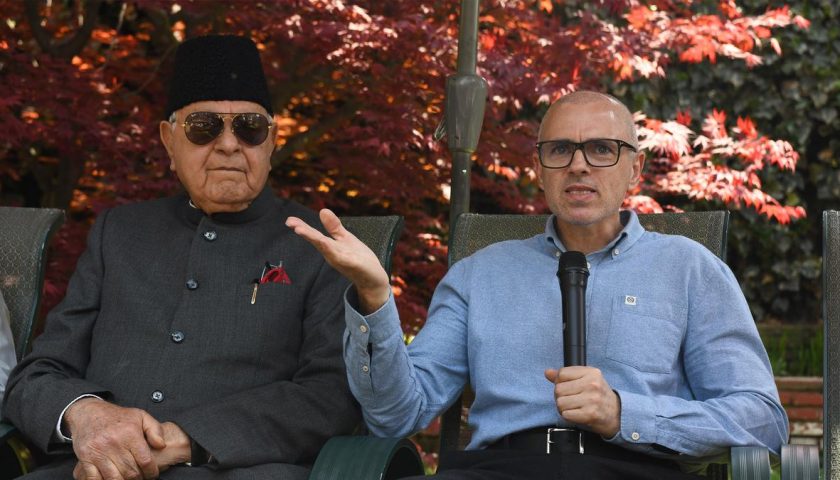 Political churning has begun over possible changes in who governs Jammu and Kashmir. Tensions are high between the main coalition partners: PDP and the BJP. A series of meetings were underway on Friday. Even if this does not lead to an immediate split, recent events have certainly put the coalition on thin ice.
Political churning has begun over possible changes in who governs Jammu and Kashmir. Tensions are high between the main coalition partners: PDP and the BJP. A series of meetings were underway on Friday. Even if this does not lead to an immediate split, recent events have certainly put the coalition on thin ice.
At some point, a period of Governor’s rule may ensue, after which Delhi’s political strategists might try to install an alternative civilian government. According to rumours in Srinagar, BJP leaders are in touch with a prominent PDP politician who could help them to cobble an alternative government.
As is well known, they also had a pow-pow with the top leaders of the National Conference immediately after fiasco that was the Srinagar by-election. Party patron Farooq Abdullah won the seat following repolling in some booths a couple of days later.
However, the Centre’s strategists might not adequately read the quicksand that is Kashmiri politics. They might find that events move too swiftly and dramatically for them to keep control.
Army repression
Over the past couple of weeks, the different attitudes of each major coalition partner to tough army action has caused strains. Kashmiri youth have been terribly upset at a series of videos showing army men battering, abusing and torturing young Kashmiris.
What has upset PDP leaders even more is that these videos appear to have been leaked by the army. Such vicious, abusive repression seems tailor-made to satisfy the irate ‘teach them a lesson’ mood that has increased among many citizens.
On the other hand, an FIR against the army officer who allegedly tied a young Kashmiri voter to a jeep to deter stone-pelting at polling booths in Budgam has upset many BJP supporters. They, and many others, who view Kashmiris as generically ‘anti-national’ support harsh, even abusive action.
The wide support for the humiliation of a voter who was tied to a jeep’s front fender indicates that many make no distinction not only between militants and stone-pelters, but also no distinction between demonstrators and law-abiding citizens.
A war of statements followed. A BJP minister, who had made some pithy anti-Muslim statements during the 2008 agitations too, said the army ought to shoot troublemakers. PDP vice-president Sartaj Madani gave a very sharp retort, saying that such disgusting utterances are unjustifiable and perilous.
Politicians terrified
This political polarisation comes at a very bad time in Kashmir. The abysmal turnout for the by-election combined with a spree of killings by militants has demoralised political workers, officials and policemen across the Valley.
Politicians are terrified, from the topmost echelons to the grassroots. Armoured BSF vehicles were parked across the gates of former chief minister Omar Abdullah’s house this week, with huge spikes to puncture tyres laid just behind. One of those gates is already gaudily vast and reinforced. In towns and villages, thousands of political workers have published statements disassociating themselves from politics.
The police have been asked to stay away from their own homes. Meanwhile, extortion and threats have become common. Some villages now defy army cordons. Militants’ ranks are swelling, and they roam freely, spreading terror amid the sympathy generated by those army videos.
Festering sore
The terrible jolt which the by-election fiasco, the new regime of militant terror, and the viciousness that has become apparent in the army’s conduct have all contributed to bringing the rift between the main coalition partners to the surface. Both sides believe it is time for tough talk with the other.
The fact remains that the Centre has given short shrift to the agenda for alliance which the two parties hammered out over ten weeks at the beginning of 2015. Not only that, the Centre starved the state of funds right until Mufti Sayeed, the first chief minister of this coalition, died on 7 January, 2016.
The Centre’s leaders trust his daughter and successor Mehbooba Mufti even less than they liked him. While Mufti cajoled and pleaded with the Centre for the last six months of his life, Mehbooba has largely remained unhappily guarded.
For the most part, her government has been in low gear, and her party in a near coma.






